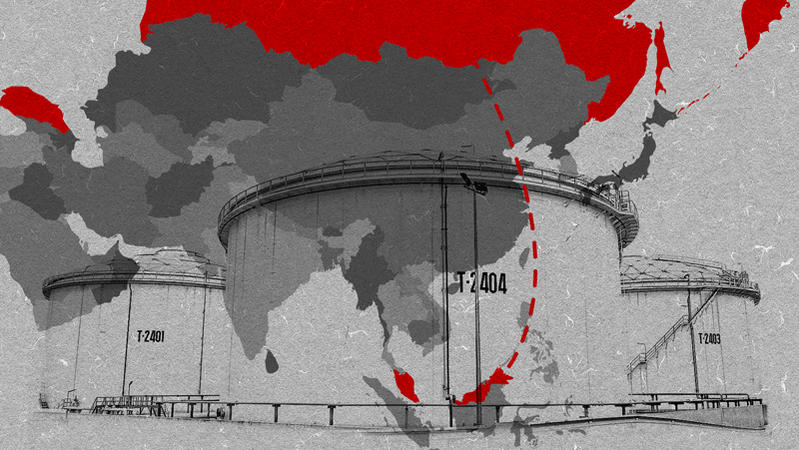
Some of Australia’s largest superannuation funds are facing allegations of profiting from Russian oil shipments transiting through South-East Asia. This has sparked concerns that Australians’ retirement savings might be indirectly supporting Vladimir Putin’s ongoing war against Ukraine.
An estimated one million tonnes of Russian oil have reportedly been offloaded over the past two years at a Malaysian shipping terminal. This terminal is co-owned by a company within the portfolio of an investment vehicle controlled by a consortium of Australian industry super funds.
Sanctions and Loopholes
As the conflict in Ukraine drags into its fifth year, Western governments are prioritizing the dismantling of Russia’s oil sector business model to weaken Putin’s regime. The Albanese government is currently exploring measures to close sanctions loopholes that allow Russian oil to enter Australia. However, the government has not yet committed to joining the European Union and United Kingdom’s recent bans on oil products refined from Russian-origin crude in third countries.
According to the Centre for Research on Energy and Clean Air (CREA), Australian imports from Indian refineries using Russian crude more than doubled between September and October. This development has frustrated the Ukrainian-Australian community, which has been vocal in its demands for stricter sanctions enforcement.
International and Domestic Reactions
This week, a coalition of 16 European Union and Ukrainian civil society organizations wrote to Prime Minister Anthony Albanese, urging him to close the loophole that allows Russian-origin oil to enter Australia. The letter stated,
“Every litre of this blood oil undermines Australia’s sanctions, strengthens Russia’s war machine, and contradicts support for Ukraine and the rules-based international order.”
IFM Investors, a Melbourne-based fund owned by 15 Australian industry super funds and a British pension fund, holds a 45% stake in Vitol Tank Terminals International (VTTI). VTTI owns the ATB oil terminal in Johor, Malaysia, where significant quantities of Russian oil have been offloaded.
Mark Corrigan, a chemical engineer and anti-Russian oil trade campaigner, reported that
“VTTI is clearly handling oil products refined in Russia and arriving by tanker from Russian ports at their terminal.”
His findings were submitted to the Australian Sanctions Office last week.
Ethical Concerns and Industry Responses
Kateryna Argyrou, chair of the Australian Federation of Ukrainian Organisations (AFUO), expressed deep concern over the situation. She stated,
“We are extremely troubled that Australian superannuation funds, through investment managers, are profiting from the Russian blood oil trade.”
She emphasized the ethical and legal implications, noting that these investments contradict Australia’s sanctions and support for Ukraine.
In response, an IFM spokesperson asserted,
“We take seriously our responsibility, and that of our funds’ portfolio companies, to act in accordance with the applicable laws and regulations of the countries we invest and operate in.”
Broader Implications and Future Actions
Foreign Minister Penny Wong has urged Australian businesses to ensure their supply chains do not inadvertently fund Russia’s invasion of Ukraine. She stated,
“Australians do expect that their businesses ensure that their supply chains don’t inadvertently fund Russia’s illegal and immoral invasion of Ukraine.”
Corrigan called for further investigations into whether Russian-origin oil products are reaching Australia via Malaysia, Singapore, or India. Meanwhile, Reliance Industries, a major Indian oil supplier to Australia, announced plans to cease using Russian oil at its Jamnagar refinery from December, potentially reducing imports of Russian-origin oil into Australia.
The Australian government, according to a Department of Foreign Affairs and Trade (DFAT) spokesperson, is evaluating options to exert more pressure on Russia’s oil revenues. The spokesperson noted,
“The government has imposed strict sanctions and other trade measures to restrict the importation, purchase, and transport of energy products coming from, or that originated in, Russia.”
As the situation evolves, the Australian government is closely examining EU and UK mechanisms to prevent Russian-origin oil from entering their markets, considering their applicability to Australia. The outcome of these deliberations could significantly impact Australia’s stance and actions regarding Russian oil imports.







